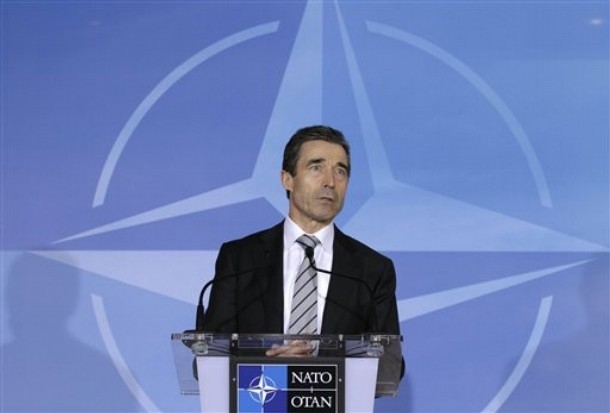
From Damon Wilson, the New Atlanticist: Fighting effectively requires fighting coherently under a unified chain of command. In Libya, this means NATO exercising effective command and control of the coalition operations. The Alliance now has command of two of three pillars of the military operation: enforcing the arms embargo with a naval blockade and (as of a few hours ago) enforcing the no-fly zone. Now allies need to agree that NATO will also be charged with the civilian protection mission authorized by UN Security Council Resolution 1973. …
The other contentious issue has been the political control and face of the military campaign. Many allies have been to keen to de-emphasize the NATO face of the operation while putting front and center the broader coalition backing UNSC resolution 1973. While this makes sense, ironically non-NATO partners ready to contribute to the operation, such as Qatar, UAE and Sweden, are more comfortable plugging into a NATO operation which has established procedures to integrate partner forces and to involve them in decision-shaping than ad hoc coalition structures. This model works well in Afghanistan, where NATO nations meet around a single table with other troop-contributing nations to review strategic military plans and provide political guidance.
While NATO’s top decision-making body, the North Atlantic Council (NAC), must remain in charge of a NATO operation, the Brits have offered a helpful proposal to convene a big tent Libya Conference in London on March 29 to maintain broad political commitment to the operation and to establish a Libya contact group. This follows the model of the March 2009 Hague meeting held just prior to the NATO summit meeting on Afghanistan. In addition to NATO and the allies, the UN, the Arab League and key members (Saudi Arabia, Egypt, Morocco, Qatar, UAE, and Jordan), the European Union, the African Union, and Sweden would participate. This group would provide leadership and overall political direction to the international effort to support Libya, a forum for coordinating policy on Libya, and a focal point in the international community for contact with the Libyan parties. It would not however replace the NAC in command authority over the military operation.
Damon Wilson is executive vice president of the Atlantic Council. (photo: AP)
Image: nato-fogh-rasmussen-libya.jpg
